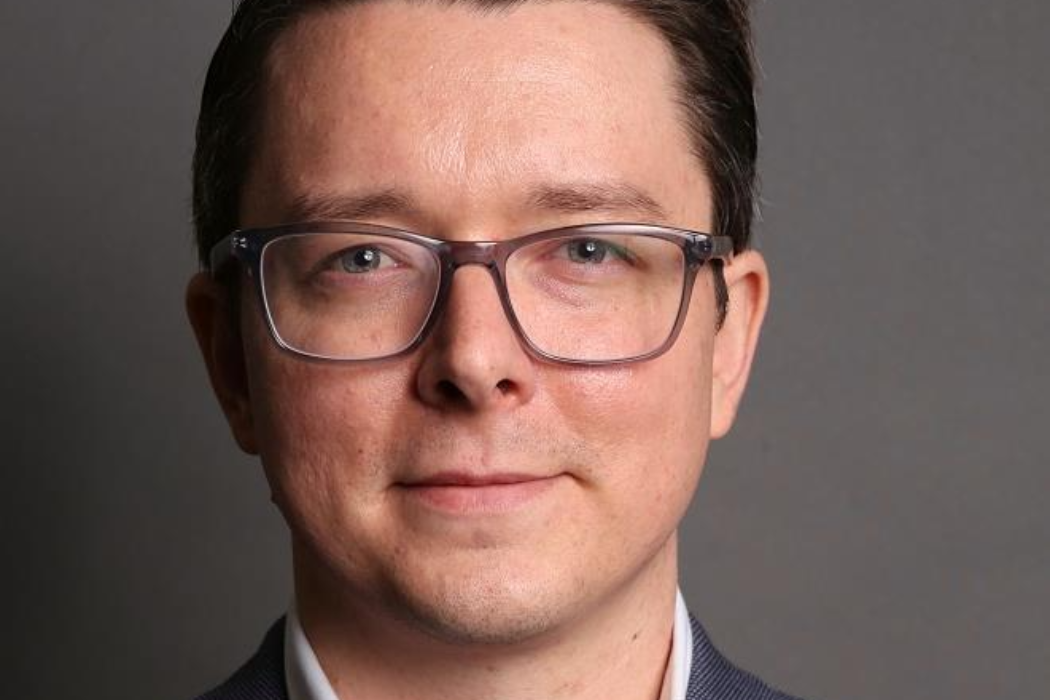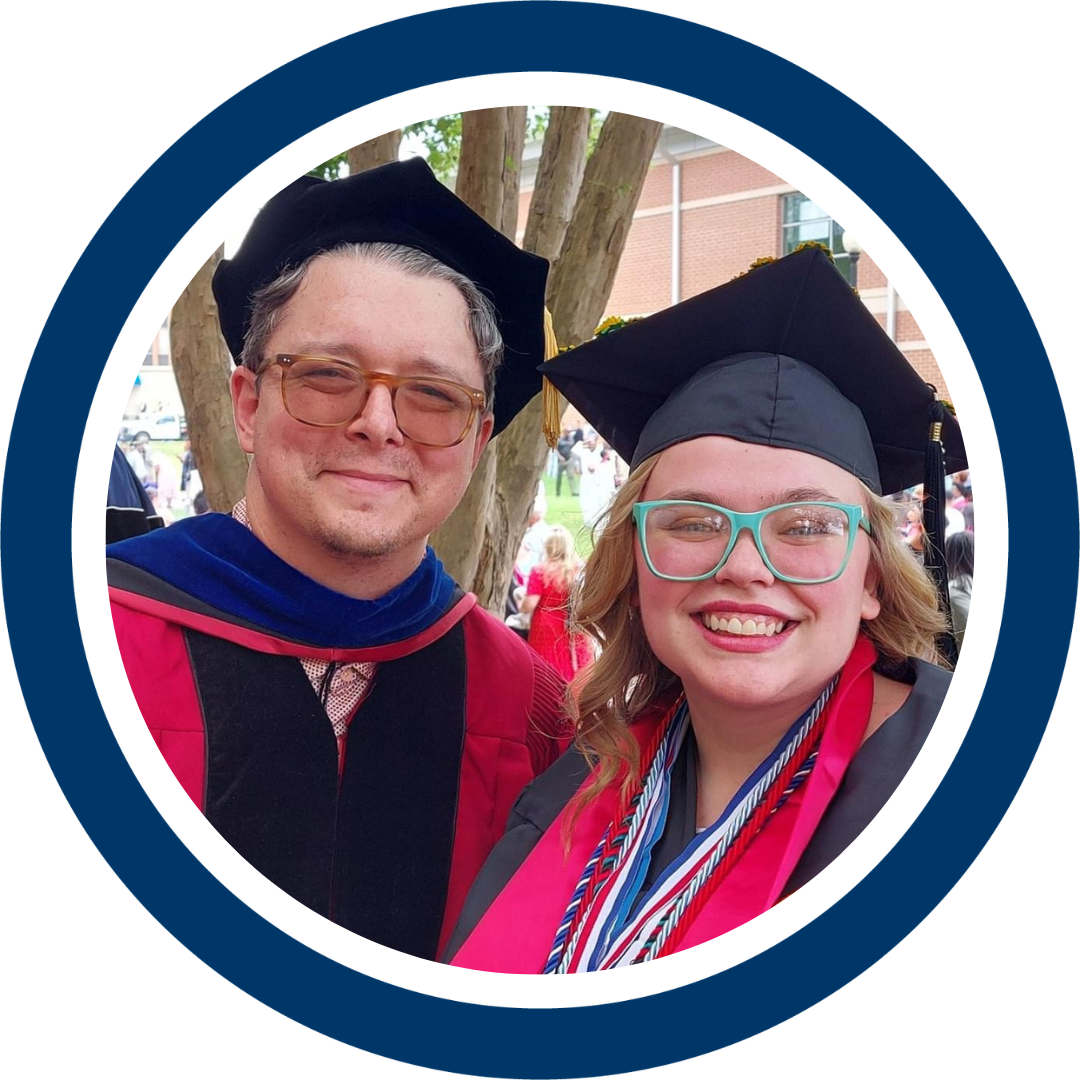Dr. Bryan Banks: Guardians of the Tapestry of Time
June 6, 2024

As Dr. Bryan Banks articulates in this recent editorial for the American Historical Association, our students benefit from the sense of community in our classrooms, their chosen areas of study, and the expertise and mentoring provided by our faculty. This opinion article was first published by "Perspective on History," a publication of the American Historical Association, on May 29, 2024.
At the end of the spring semester, we in the Columbus State University history department gather to hear senior capstone research presentations, to share the winners of the department’s history paper awards, and to induct students into Phi Alpha Theta, the nation’s history honors society. A week before the university’s official commencement exercises, this is where our faculty, staff, and students come together to celebrate all that we have accomplished. All too often we focus on individual research and forget that our mission is much greater. Collectively, we are guardians of the tapestry of time. We are a community.
This was my first year as department chair, and so this gathering felt particularly important to me. In my remarks to our history majors, I felt compelled to draw together the reasons we were in that room and in that community. We as a discipline need to hear it again. History is not merely a collection of dates and events; it is a rich tapestry woven by countless individuals across centuries. Each thread represents a story, a struggle, a triumph. As historians, we are entrusted with studying, preserving, and protecting this intricate fabric.
This impulse was driven by a number of current issues: higher education’s emphasis on career readiness, STEM-focused administrators, the rise of AI, a perceived decline in civil discourse, and attacks on the teaching of hard history. We face so many obstacles. We need to remind our students and ourselves why we do this work.
There is a moral imperative for us as historians then to guard the tapestry of time—to preserve it, but also to constantly emphasize its importance today and tomorrow. Historical knowledge is the bedrock of decision-making, critical thinking, and action. The methods we develop over time should make us better decision makers, if not only because thinking historically cultivates the skill of capable listening, seeking out marginalized voices, appreciating perspectives quite different from one’s own, and collecting and weighing the facts before taking action. Critical thinking is not a soft skill—it is the most important skill. It aids us in thinking through complex budget decisions, but it also helps us know how to weld metal without causing ourselves or others serious harm. By stressing this moral imperative, I was trying to instill in the students pride in their work. Giving presentations in front of the department and doing it well means something. Many of them will go off to teach students themselves. Others will go into business, law, or simply take their degrees and make better decisions in life because they will approach challenges with a historical perspective.
I told them up front that I was going to be a little sentimental. So often morality and sentimentality are eschewed in the name of objectivity. But humans are social creatures, and we need a banner to work under. In our department, we take our work seriously, but we don’t take ourselves seriously. Our faculty have an open-door policy, and students are always in our offices. We hold them accountable and aren’t afraid to have empathetic and tough conversations, but just as often we might be bowling in the hallway with a cannonball from the Napoleonic era. A colleague and I even co-officiated a student’s wedding this winter. So my comments were intended to remind them that while we have a lot of fun, we study and teach history for important reasons. We can’t focus so much on research and writing skills that we forget about the importance of community and our collective responsibility to the past that undergirds that community.
Our duty as teachers and students is to delve beyond textbooks, seek out forgotten narratives, and amplify voices that history has often silenced. Together, we explore the annals of time, uncovering hidden gems and challenging conventional wisdom. Whether we study ancient civilizations, revolutions, or cultural shifts, our shared curiosity creates our community. Let us remember that knowledge is not static; it evolves with each discovery. History is a dynamic process, forever unfolding and we unfold with it, seeking truth and understanding. Our community is dynamic. We need to work on fostering it.
Color me an idealist, but the one thing that has become so very apparent to me as a historian and history educator over the last few years has been the power of community. We all heard the death knell of community when COVID-19 filled our lungs and echoed across society. Our department, and our branch of the disciplinary tree that is history, thrives off community, collective action, and mentorship. Mentorship goes in multiple directions. My doctoral advisor still periodically drops acorns of truth to me, but so too do I receive mentoring from my other colleagues and students. They all help me become better. As a community, we navigate challenges and celebrate victories together. We make each other better.
Our discipline is a voluntary association of individuals, but we do sign a “social contract” of sorts. Common to this fold are history educators, students, public historians of all stripes, as well as self-described history buffs. As such, we all come at the past from different perspectives and so we owe to the community an ever-careful eye towards objective truth and purpose. This is our mantle of responsibility. We are not passive observers but active participants in shaping historical discourse. Our research, our teaching, and our advocacy matter. Advocacy is overt. We voluntarily come together behind common causes, like education reform and government spending for history education. We refuse to sanitize the past for the present’s comfort or political persuasion. We stand up when we see injustice and know the history that led to it.
Banks is an associate professor and chair of the Department of History, Geography & Philosophy, where he has served on the faculty since August 2018. His academic teaching focus includes early modern and modern European history, comparitive revolutions, religious studies and digital humanities. He serves as executive editor of “Age of Revolutions” and taught previously at the State University of New York-Adirondack, Georgia State University, Florida Atlantic University and Florida State University. He holds a bachelor’s in world history from Georgia State University, and both a master’s in European history and a doctorate in 18th-century Atlantic world history from Florida State University.
He is pictured with 2024 Columbus State Faculty Cup winner, Boren Fellow and May 2024 history graduate Bailey Melton.
